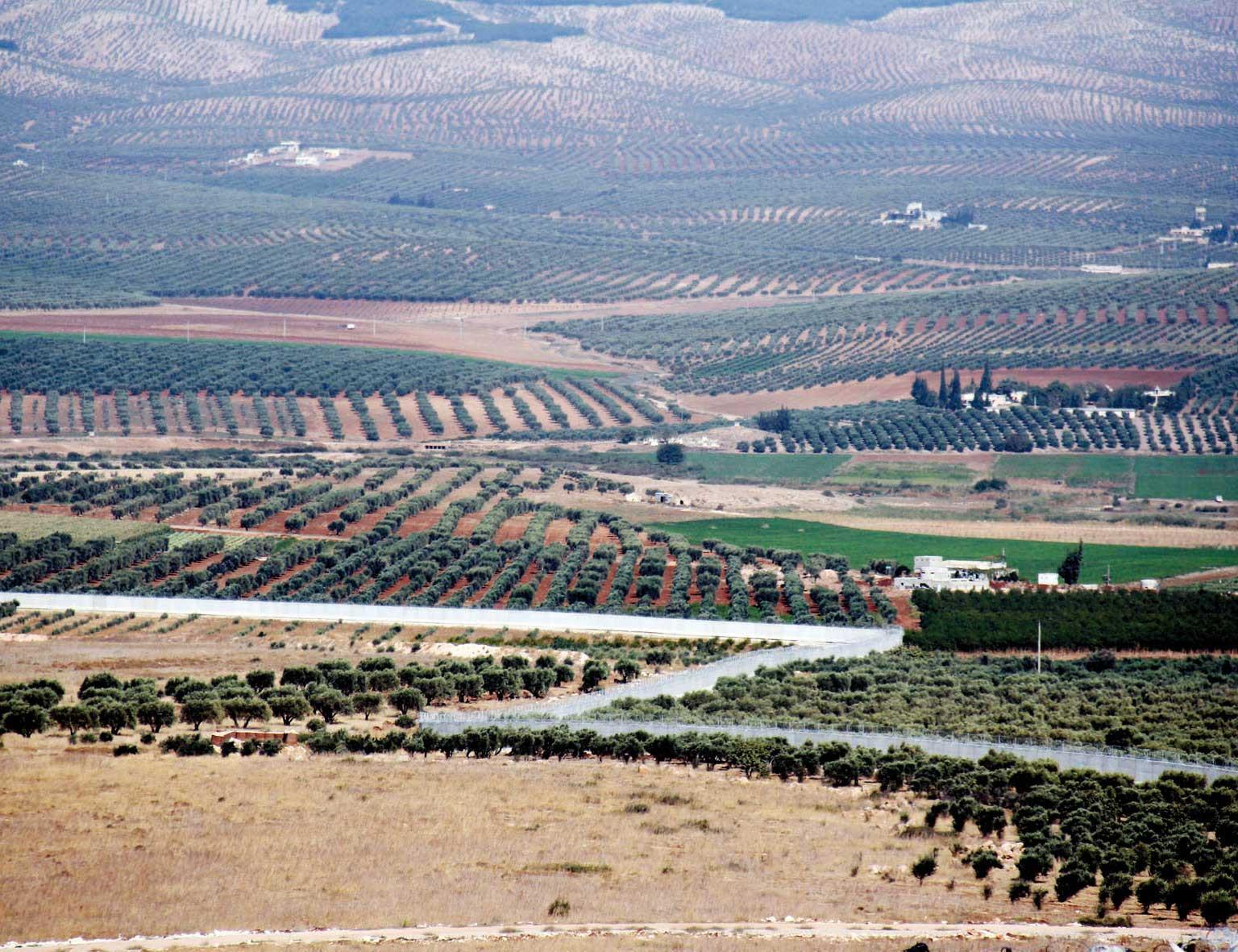
The Turkish military has been expanding its deployment in northwest Syria with the goal of encircling militants of the People’s Protection Units (YPG) in Idlib province, as part of a deal to reduce clashes.
Turkey is building a barrier against the YPG’s ambition to unite its forces in the isolated Afrin region, north of Idlib, with the rest of its positions in Jendaris in the Barakat Mountains.
The military has deployed tanks and Stinger missiles, backed by receptors and a hi-tech computer system, in Idlib. Armed drones are also reportedly conducting surveillance flights.
A convoy of Turkish troops entered Syria near the Bab al-Hawa border crossing on Oct. 12. It was the first such deployment since last year, when Ankara launched a major ground and air offensive to clear YPG and Islamic State of Iraq and the Levant (ISIL) militants from its last stretch of border with Turkey.
At least four convoys carrying scores of armored vehicles and equipment have been stationed in several locations in the first phase of a deployment that is expected to deepen inside rebel-held Idlib, opposition sources said.
“Nearly 200 troops are now stationed in areas that separate territory under control of Kurdish groups and opposition groups,” said Ibrahim al-Idlibi, a military adviser in the opposition’s Free Syrian Army (FSA), which is backed by Turkey.
Witnesses said Turkish bulldozers were working around the clock, digging fortifications and setting up observation posts.
A new deployment of Turkish armored vehicles and personnel arrived along the Syrian border on Oct. 14, positioned on the Turkish side, witnesses said.
“Turkish forces are still in a state of advancing and expanding,” said Mustafa al Sejari, an FSA official.
Turkey says its operations there, along with the FSA, is part of a deal it reached last month with Russia and Iran in Kazakhstan to reduce fighting between insurgents and the Syrian government.
Parliament Spokesperson İsmail Kahraman said on Oct. 14 that Ankara and Moscow are working in “close coordination” on Syria.
“Multifaceted cooperation with Russia is one of the key elements of our foreign policy. We are in close coordination on Syria as well,”
Kahraman told a news conference in St. Petersburg after a meeting with his Russian counterpart Vyaceslav Volodin.
Syria on Oct. 14 denounced the Turkish move, saying it was a flagrant violation of its sovereignty and demanding that Ankara pull out its troops.
FSA rebel groups said the goal of the campaign was to push deeper into the province, with the expansion of supply lines and observation posts. The jihadists would be retreating further south in a phased withdrawal.
“The Turks will be taking up positions 40 km deep inside Idlib as agreed,” Idlibi said.
The goal is ultimately to create a contiguous stretch that goes from Bab al-Hawa all the way to Jarablus city, west of Euphrates River and as far south as the city of al-Bab, widening a pocket of the northern border under the control of Turkey-backed rebels.
Many residents in the towns of Idlib province, where more than 2 million people live, have welcomed the arrival of Turkish troops, Reuters reported.
They are seen as a bulwark against heavy Russian and Syrian army bombardment to crush the rebel province that would cause massive devastation and high civilian casualties.
“The Turks presented the factions of the FSA the military and logistical support so that Idlib escapes the fate of Deir Zor or Raqqa,” said Colonel Abdul Jabar Akaidi, a commander in the FSA in the north.
Heavily-populated Idlib has been the target of hundreds of strikes by the Russia and Syrian air forces in the past year that has killed hundreds of civilians and destroyed hospitals and civil defense centers.
Six months of relative peace under a Turkish-Russian understanding that gave a temporary reprieve to thousands of people was shattered when Russia resumed an intensive bombing campaign last month when jihadists launched an offensive against Syrian army positions.